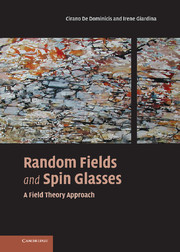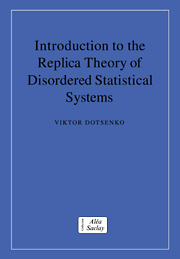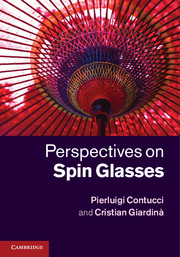Random Fields and Spin Glasses
Disordered magnetic systems enjoy non-trivial properties which are different and richer than those observed in their pure, non-disordered counterparts. These properties dramatically affect the thermodynamic behaviour and require specific theoretical treatment. This book deals with the theory of magnetic systems in the presence of frozen disorder, in particular paradigmatic and well-known spin models such as the Random Field Ising Model and the Ising Spin Glass. This is a unified presentation using a field theory language which covers mean field theory, dynamics and perturbation expansion within the same theoretical framework. Particular emphasis is given to the connections between different approaches such as statics vs. dynamics, microscopic vs. phenomenological models. The book introduces some useful and little-known techniques in statistical mechanics and field theory. This book will be of great interest to graduate students and researchers in statistical physics and basic field theory.
- Includes end of chapter summaries
- Each chapter is organised in the clearest way possible
- Many computations are explained, so readers can reproduce the results and understand the techniques
Reviews & endorsements
Review of the hardback: ' … written in a masterly and elegant fashion by two remarkable researchers who have themselves … fundamentally contributed to the subject …' Journal of Statistical Physics
Product details
October 2006Hardback
9780521847834
230 pages
254 × 178 × 14 mm
0.62kg
Available
Table of Contents
- 1. A brief introduction
- 2. The Random Field Ising model
- 3. The dynamical approach
- 4. The p=2 spherical model
- 5. Mean field spin glasses: one-step RSB
- 6. The Sherrington–Kirkpatrick model
- 7. Mean field via TAP equations
- 8. Spin glass above D=6
- 9. Propagators, mostly replicon
- 10. Ward–Takahashi identities and Goldstone modes
- 11. Alternative approaches and conclusions
- Appendices
- Index.




